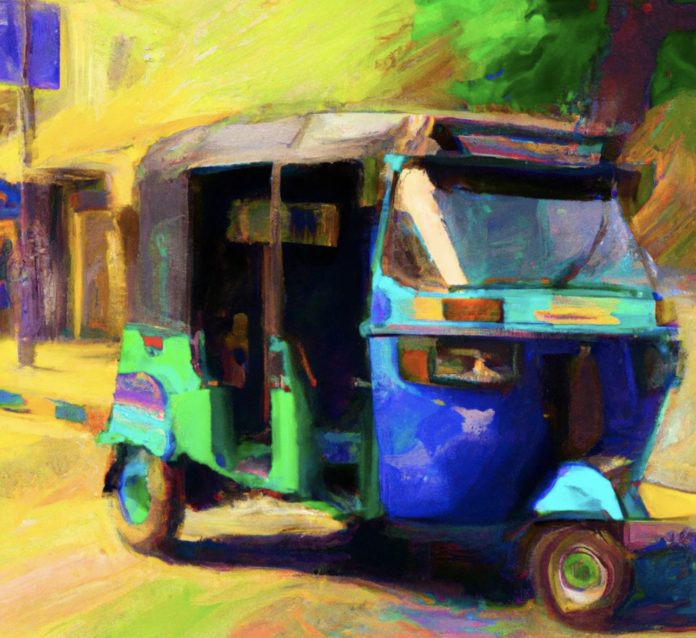There’s something lovable and adorable about tuk-tuks. But my goodness, they sure can be dirty vehicles — in terms of the pollution they emit. The great thing they have going for them is that they’re small and should be easy to electrify.
Naturally, most of us don’t see tuk-tuks in our everyday life. However, there are millions upon millions on the roads of some countries, and all of those tuk-tuks make their own notable impact on the climate and air pollution where they operate.
Sri Lanka is one of those countries, and it is now looking to do something about this problem. Within the next 5 years, Sri Lanka plans to convert half a million fossil-fueled tuk-tuks to electric tuk-tuks. The island country hovering just south of India currently has about 1.2 million tuk-tuks on the road.
Sri Lanka’s Ministry of Transport and Motorways, its Ministry of Electricity and Energy, and the United Nations Development Program (UNDP) are the bodies behind this electrification plan. The transition will occur in three stages: an incubation phase, a demonstration phase, and an acceleration phase.
The incubation phase involves converting 200 tuk-tuks to electric powertrains in Pettah and Makumbura, suburbs of the capital city of Colombo. As far as what and who can qualify for inclusion in this phase, a Sri Lanka newspaper, Sakshi Post, writes: “For the incubation phase, a number of criteria have been introduced for selection vehicles and owners. These criteria include: the age of tuk-tuk should not be greater than 10 years from date of manufacture, only petrol 4-stroke three-wheelers are eligible, priority would be given to applicants whose livelihood is dependent on a single three-wheeler, and preferential selections are to be given to women owners, operators and persons with disabilities.”
Part of the inspiration for this electric tuk-tuk program was a fuel crisis in the country and the growing cost of fossil fuels. “Unable to import necessary fuel, nearly 500, 000 tuk-tuk drivers who were solely dependent on hires became jobless with weeks long queues in last year,” Sakshi Post writes.
“With the prevailing socio-economic crisis in the island, a shift towards adopting sustainable mobility approaches has been identified as a necessity for a green recovery process,” the UNDP stated in May. “This pilot project is a part of UNDP’s Green Development Portfolio, which is currently being developed. This portfolio aims to build solutions and support Sri Lanka’s development in catalysing low-carbon, green, and inclusive development within which sustainable transportation and e-mobility play a key role,” UNDP’s Resident Representative in Sri Lanka, Azusa Kubota, added.
“Electric three-wheelers will not only benefit individual operators but also contribute to spring boarding the country’s economic recovery process,” Transport and Highways Minister Bandula Gunawardena said.
We’ll see how this electrification plan goes and keep CleanTechnica readers updated and educated. Perhaps the guys at RACEnergy can also help Sri Lanka to electrify tuk-tuks at some point too, including the convenient use of its battery swapping technology
cleantechnica.com


